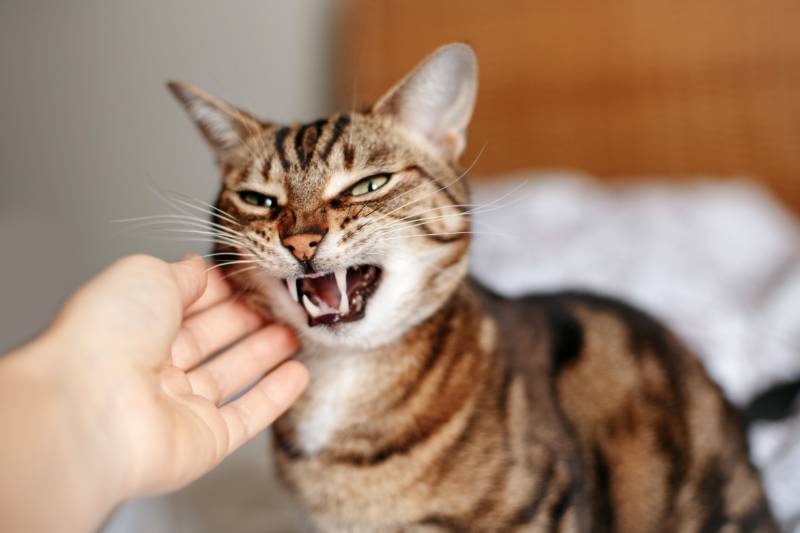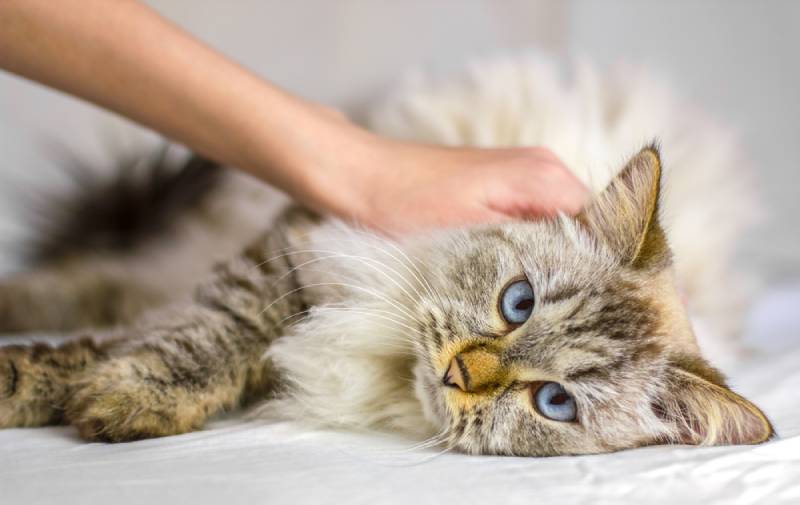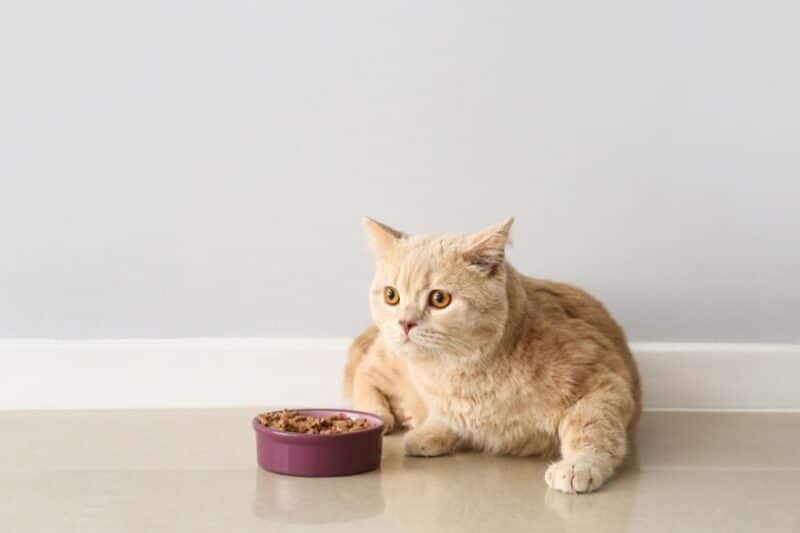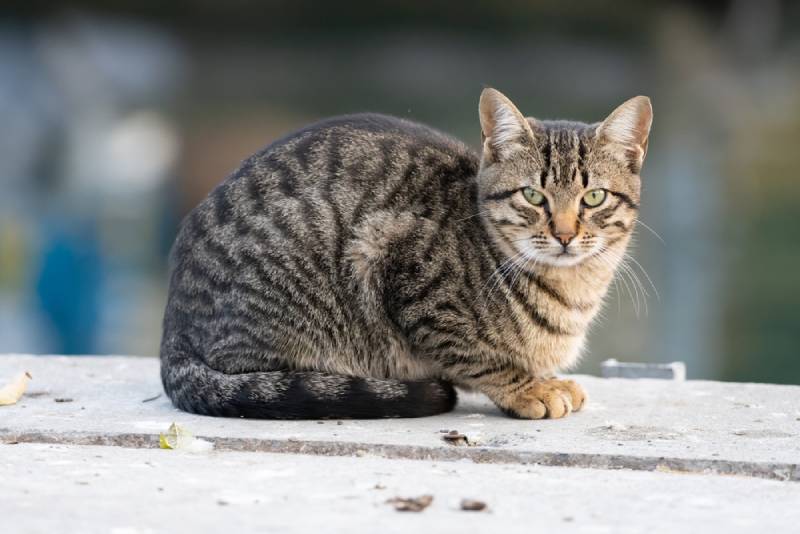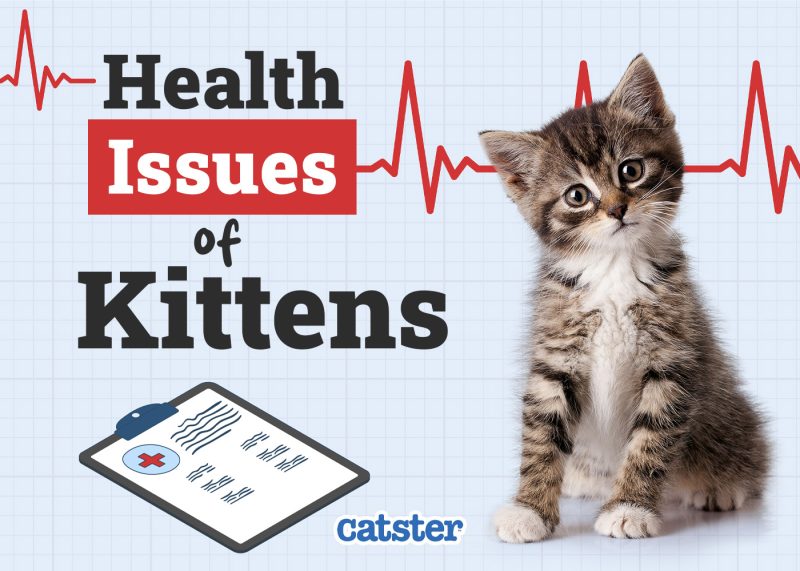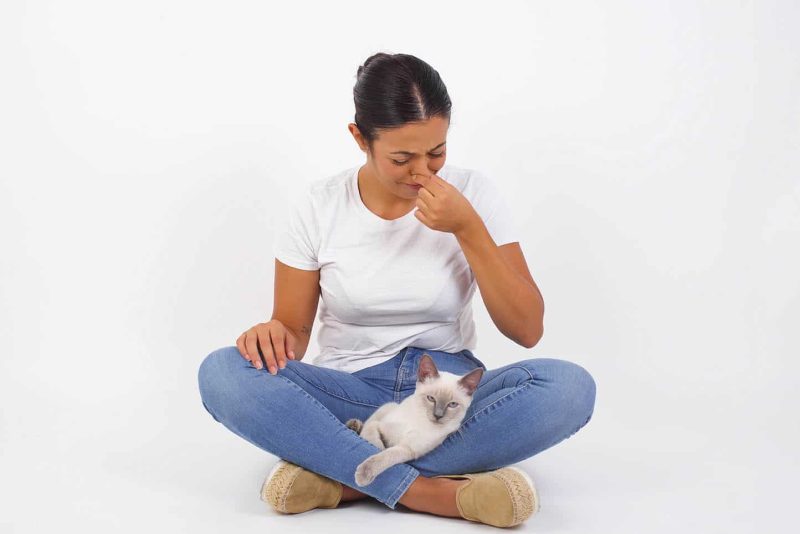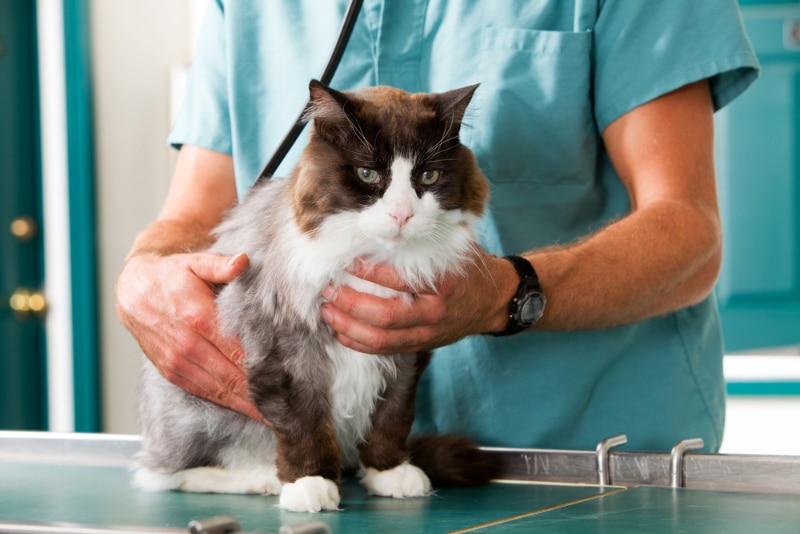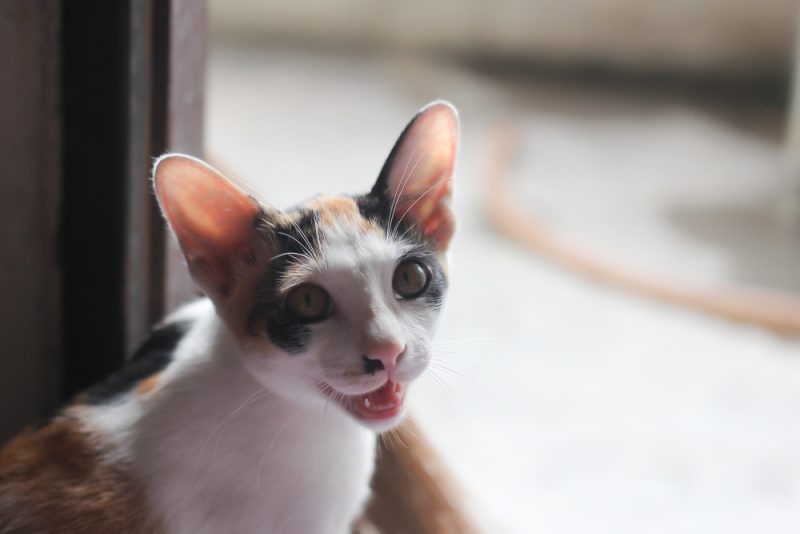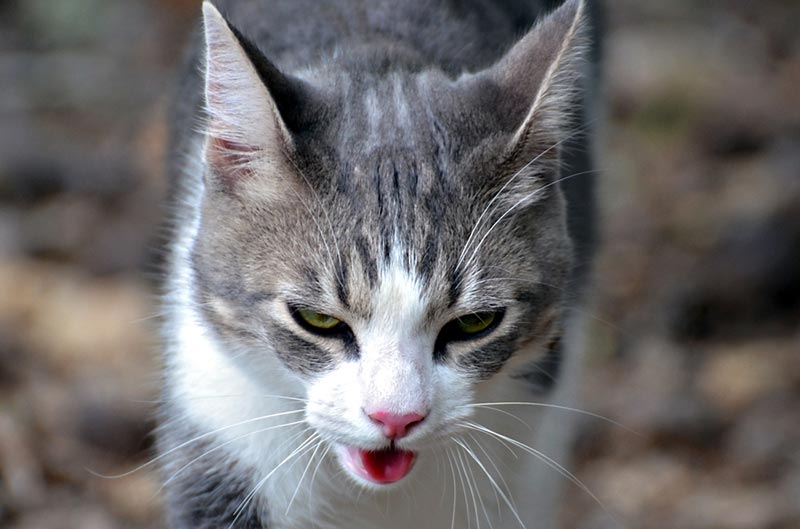Cat behavior can often seem like a mystery. Cats experience a range of emotions that can influence their behavior. It seems that they can feel, for example, anger, stress, fear, and sadness ,which may understandably affect how they behave and interact with us.
A cat perceived as misbehaving might just be behaving like a cat. Cats that seem to behave “bad” or annoying could be displaying instinctual cat behaviors or could be suffering from an illness or a behavioral problem rooted in a poorly enriched or an unpredictable environment.
Before you think that what your cat needs is to be punished or reprimanded for their behavior, it’s important to understand the possible reasons behind it. This allows you to find the best ways to address this behavior and understand your feline better.

The 8 Possible Reasons for Misbehavior in Cats
1. Stress or Anxiety
Stress could cause your cat to behave differently. Cats can feel stressed for various reasons, such as from a minor situation or exposure to long-term stressors.
An unpredictable environment and major household or routine changes can make your cat “act out” for a period of time. Other stressors, such as loud noises, fireworks, or thunderstorms, might have an effect on them for a few minutes or hours until they recover.
Cats that suffer from stress might start urine spraying, scratching furniture, or hiding more often. These stress-related behaviors need to be addressed promptly together with the root of the problem.
Stress is not good for anyone, so keeping your cat as stress-free as possible is important for their health and well-being.
If your pet is showing signs of stress or anxiety, we suggest you speak to a vet.
If you need to speak with a vet but can't get to one, head over to PangoVet. It's an online service where you can talk to a vet online and get the advice you need for your pet — all at an affordable price!

2. Fear
Cats can feel fear, which manifest as the following, amongst others:
- Changes in mood
- Restlessness
- Appetite changes
- Excessive grooming
- Hypervigilance
- Tail flicking
- Trying to escape or hide
An anxious and fearful cat is not going to behave normally. You can expect noticeable changes in their mood and behavior, such as food refusal, hiding, or restlessness. They might be jumpy and prefer to hide than play or roam the house like they used to. Cats can become anxious or fearful for several reasons. These reasons are usually related to trauma, illness, pain, and improper socialization.
Your cat could have gotten a major fright that has caused them to become fearful. Perhaps a neighbor got a new dog that scared them, or fireworks went off. Also, what might seem like something silly to us, might seem significant and scary for your cat hence their anxiety and fear.
3. Redirected Aggression
Redirected aggression is defined as aggression that was meant to be directed to another animal, person, or stimuli but the cat is unable to. They redirect their aggression towards other pets or animals because they cannot take it out on the source. For example, your cat could have seen another cat outside that got in their territory. Your cat could not get outside because the window was closed, making them agitated.
When you go to interact with your cat in this agitated state, they might start biting or scratching you for no apparent reason. This aggression was not meant for you, but rather for the other cat outside.
Various situations can cause your cat to redirect their aggression. You should try to pay attention to their environment and what they were previously doing to understand if their misbehavior could be redirected to aggression.
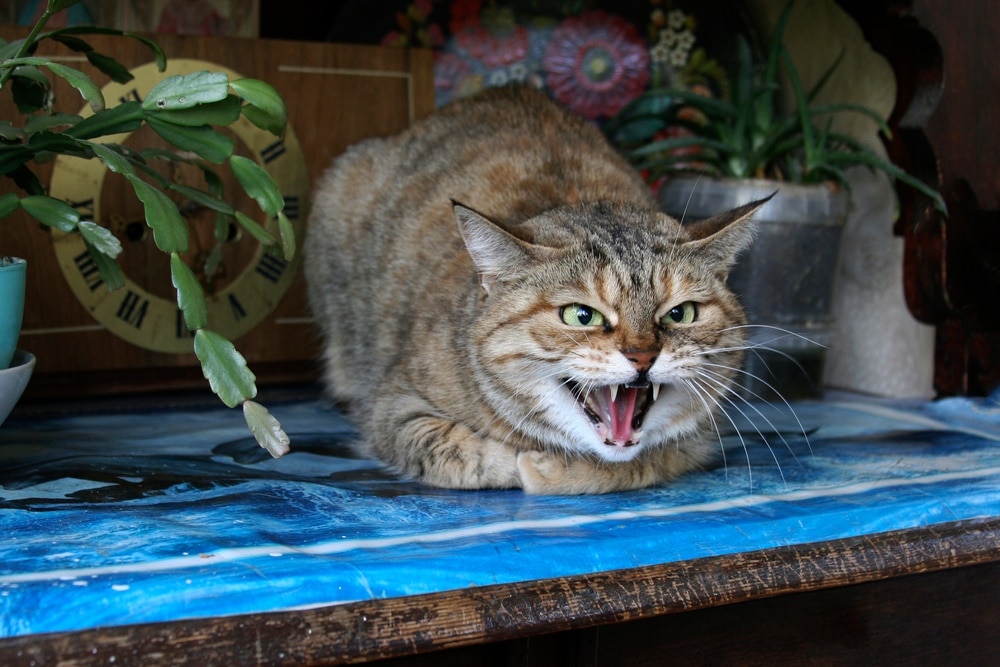
4. Medical Issues
When a cat is not feeling good, whether it is from an illness or pain, their behavior could reflect it. Cats generally hide signs of illness or pain well to avoid appearing vulnerable, so changes in their behavior should be taken seriously.
Sometimes their pain or illness is not detectable to you, which is why they need to be checked by a veterinarian. What you might deem as your cat misbehaving could be just a sign that something is not right.
An example would be a cat that is not using their litter box properly and urinates next to it or somewhere else. This could be because your cat is having trouble jumping into the litter box because of a painful condition like arthritis or because they have cystitis. Aside from physical illness or pain, cognitive-related issues can cause changes in your cat’s behavior too.
5. Poorly Enriched Environment
Cats’ level of well-being is dependent on their environmental comfort. Cats need a safe place to hide and rest and enough resources (food and water bowls, litter boxes, scratching posts, and toys). They need all these to engage their natural behaviors.
A cat whose environmental needs are not met might become destructive or have sudden bursts of energy that can become disruptive in the home. They might start playing with your shoelaces or scratching your furniture because they have no appropriate toys to direct the behavior to. You should speak to your vet to get a better understanding of your cat’s specific environmental needs if they are showing this type of behavior.
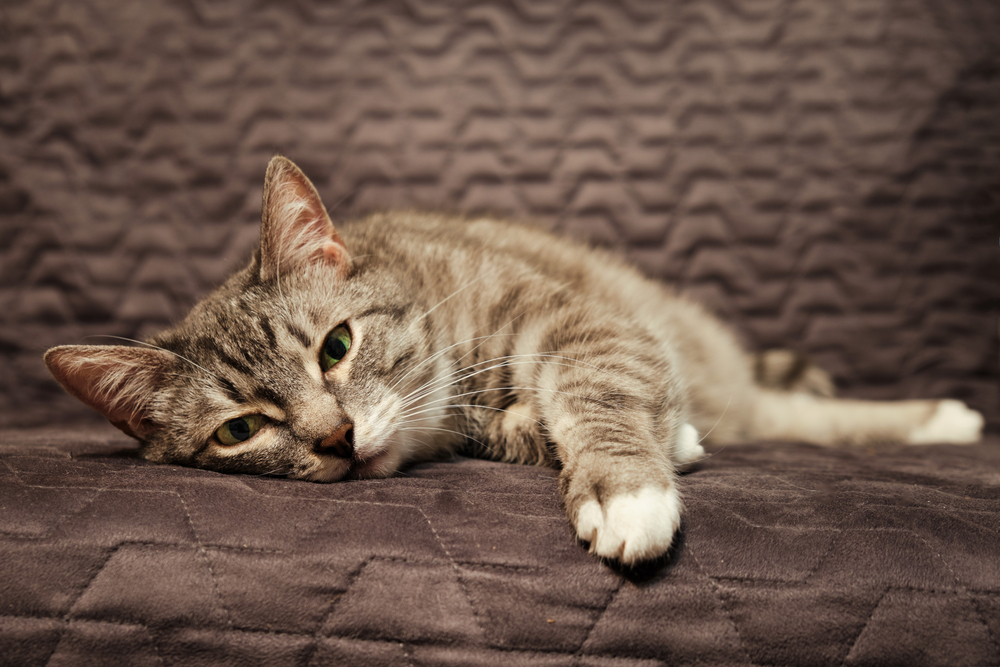
6. Litter Box Troubles
Cats can be finicky about their litter box, whether it’s the design, location, litter type, or cleanliness. Other factors, such as mobility issues and the presence of other cats, can also cause your cat to change their litter box habits. Cats that are not happy with their litter box generally start doing their bathroom business outside of it.
If you notice changes in your cat’s litter box habits, you should schedule an appointment with a veterinarian first to rule out potential medical issues. The veterinarian can also help you determine why your cat has litter box troubles once medical issues have been ruled out. Perhaps the litter box is too small, or the design is uncomfortable for your cat. Otherwise, something as simple as a dirty litter box could be to blame.
7. Hormones
It is normal for unneutered or unspayed cats to display unwanted behaviors because of sex hormones. This is why the seemingly playful and cuddly kitten you brought home starts showing unwanted behavior once sexually mature. These unwanted behaviors typically begin when your cat is about four to six months old.
Hormonal behaviors in male and female cats can range from urine spraying to increased roaming, vocalizing, and aggression. They may have a strong urge to escape the home and become vocal and destructive when they cannot get out. Their urine spraying can leave nasty smells and stains on your furniture and become a pain to clean.
If this is the case, you should speak with a veterinarian about managing their hormones and look into getting them neutered or spayed.
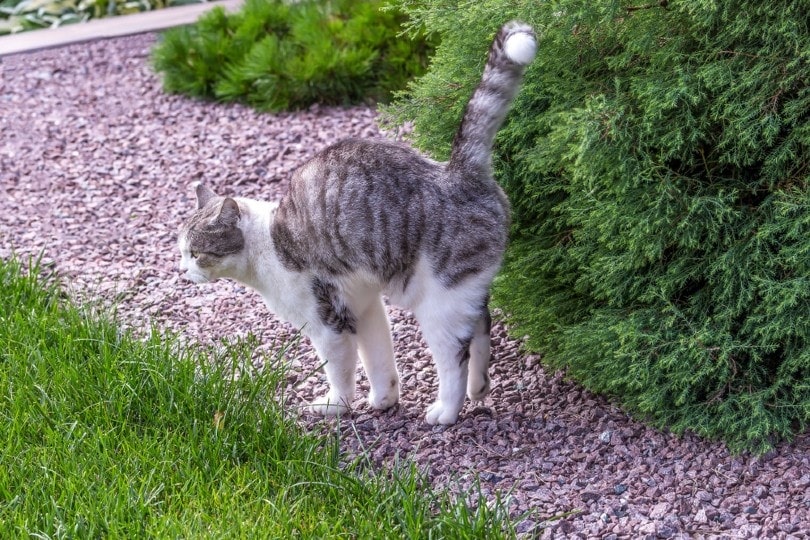
8. Territorial Behavior
Cats are territorial by nature, and when other cats are introduced to their territory, they may show signs of territorial aggression, urine spraying, or scent-marking. Cats may urine spray on various surfaces to mark their territory. Although the behavior is undesirable to us, it communicates territory to other cats.
Furthermore, cats will rub their scent glands located on their head, paws, and rectum to transfer pheromones and scent marks. If you have a multi-cat household or have neighborhood cats that wander into your garden, your cat could display territorial aggression.
Some cats are protective over their claimed people or items, so it’s not uncommon for them to fight over them. Most cats are not welcoming of roaming cats in their gardens or homes and become aggressive to defend their territory.

Conclusion
There are many possible reasons why your cat might change their behavior and appear as misbehaving. Most of the reasons indicate an underlying issue that needs to be addressed, such as pain or stress. Helping your cat overcome the underlying issue with the assistance of your veterinarian can help identify the reason and correct misbehavior.
You should never ignore sudden behavior changes in cats, especially if they include signs of illness and pain.
See also:
- Why Does My Cat Fart on Me? 7 Vet Reviewed Reasons
- Why Is My Cat So Jumpy All of a Sudden? 8 Vet Reviewed Reasons
Featured Image Credit: AnnaKraynova, Shutterstock
